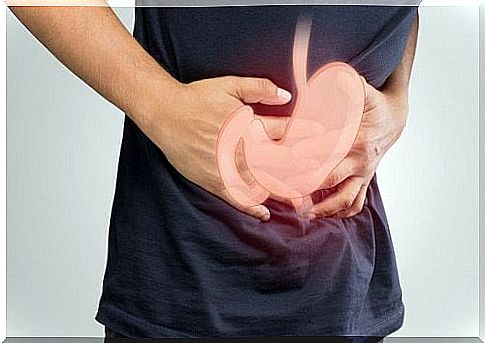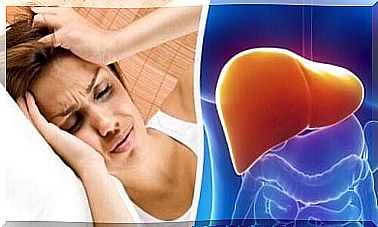Functional Dyspepsia: Causes, Symptoms And Remedies

Functional dyspepsia is a condition that is almost exclusively caused by stress or anxiety. It can affect the stomach and inflame the gastric mucosa.
Characteristic of this condition is that it is an emotional disorder that occurs very often. It also affects many people. This disease causes symptoms such as:
- heartburn
- nausea
- stomach ache
Functional dyspepsia can be acute or chronic. Acute gastritis occurs very suddenly and is intense. However, chronic gastritis can last for years if left untreated.
Erosive gastritis is a less common form of this condition. Usually it doesn’t cause much inflammation. However, it can lead to bleeding and ulcers in the lining of the stomach.
There are many causes of this inflammation. Examples are an infection, stress, injuries or disorders of the immune system. Multiple studies have confirmed the role of emotional stress and depression.
Those factors can influence the development of gastrointestinal disorders such as functional dyspepsia. Fortunately, with some natural remedies, we can treat the symptoms of this disease ourselves at home.
What are the causes of functional dyspepsia?
The following factors can cause functional dyspepsia:
- stress
- Feelings of Anxiety
- nervousness
- Excessive alcohol consumption
- Vomit
- Infections due to allergies or viruses
- Bile reflux
- A bad diet
In addition to these factors, functional dyspepsia mainly occurs due to the presence of a bacterium called Helicobacter pylori. This bacterium often grows in number due to the symptoms we mentioned earlier.
When you become overwhelmed by your daily grind combined with family responsibilities, it can make this condition even worse.
This bacterium is present in the stomach of between 60% and 80% of people. It usually does not cause any symptoms. However, it can damage the protective wall of the gastric mucosa. Read on and discover more about this!
What are the symptoms of functional dyspepsia?

The symptoms of functional dyspepsia can vary from person to person. These are some of the most common symptoms:
- Vomit
- Black stool
- A burning sensation in the stomach
- Loss of appetite
- Stomach ache
- Indigestion
- Nausea
- Stomach upset
- Gastric acid
The treatment of this condition
To treat this condition, you need to eat a light and healthy diet. This can help manage the symptoms. It means that your meals should include vegetables, fruit, meat, fish, soup, rice and plenty of water.
At the same time, it is essential that you are emotionally stable. This is very important to treat gastritis. Keeping a mental balance helps the body to recover. In this way, the body and mind get the chance to be in harmony and function healthy.
In other words, you have to learn things to keep stress under control. Stress can be responsible for the increase in the production of stomach acid. This affects the lining of the stomach.
Exercising, on the other hand, is the best solution to end stress and stimulate the production of endorphins.
We also recommend limiting your intake of painkillers. If you suffer from episodes of functional dyspepsia and you buy medicines without a prescription, these medicines can provide temporary relief.
However, it is better to consult a specialist immediately. A doctor can prescribe medication that effectively lowers acid secretion and protects the gastric mucosa.
What Remedies Relieve Functional Dyspepsia?

The most important thing you can do at home yourself is watch your diet and relieve stress. Remember that diet plays a key role in the treatment of functional dyspepsia.
A suitable diet does not only prevent stomach complaints in the short term. It will also protect the digestive system in the long term. Also avoid products such as:
- alcohol
- ultra-processed foods
- sour products
- dairy products
- sugary or spicy food
Finally, we have listed a few more tips for you:
- Drink green tea at least once a week as it helps to reduce the abundance of Helicobacter pylori in the digestive tract.
- You can also try a spoonful of baking soda (9g). This can help to put an end to the heartburn caused by functional dyspepsia.
- Aloe vera is also one of the plants that people use to relieve heartburn. It also contributes to the reduction of the consequences of functional dyspepsia.
- In addition, essential oils, such as peppermint or ginger, can also have a positive effect on the stomach.
Finally, don’t forget that stress can cause and make functional dyspepsia worse. So it is very important that you consider making changes in your lifestyle. After all, this can help to lower the level of anxiety.
If you start with exercise, a healthy diet and a good night’s sleep, chances are you will feel much better.









